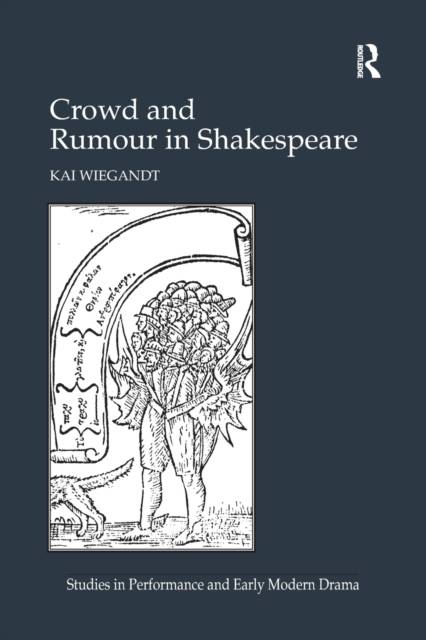
- Afhalen na 1 uur in een winkel met voorraad
- Gratis thuislevering in België vanaf € 30
- Ruim aanbod met 7 miljoen producten
- Afhalen na 1 uur in een winkel met voorraad
- Gratis thuislevering in België vanaf € 30
- Ruim aanbod met 7 miljoen producten
Zoeken
Omschrijving
In this study, the author offers new interpretations of Shakespeare's works in the context of two major contemporary notions of collectivity: the crowd and rumour. The plays illustrate that rumour and crowd are mutually dependent; they also betray a fascination with the fact that crowd and rumour make individuality disappear. Shakespeare dramatizes these mechanisms, relating the crowd to class conflict, to rhetoric, to the theatre and to the organization of the state; and linking rumour to fear, to fame and to philosophical doubt. Paying attention to all levels of collectivity, Wiegandt emphasizes the close relationship between the crowd onstage and the Elizabethan audience. He argues that there was a significant - and sometimes precarious - metatheatrical blurring between the crowd on the stage and the crowd around the stage in performances of crowd scenes. The book's focus on crowd and rumour provides fresh insights on the central problems of some of Shakespeare's most contentiously debated plays, and offers an alternative to the dominant tradition of celebrating Shakespeare as the origin of modern individualism.
Specificaties
Betrokkenen
- Auteur(s):
- Uitgeverij:
Inhoud
- Aantal bladzijden:
- 228
- Taal:
- Engels
- Reeks:
Eigenschappen
- Productcode (EAN):
- 9781138252578
- Verschijningsdatum:
- 11/10/2016
- Uitvoering:
- Paperback
- Formaat:
- Trade paperback (VS)
- Afmetingen:
- 156 mm x 234 mm
- Gewicht:
- 326 g

Alleen bij Standaard Boekhandel
+ 204 punten op je klantenkaart van Standaard Boekhandel
Beoordelingen
We publiceren alleen reviews die voldoen aan de voorwaarden voor reviews. Bekijk onze voorwaarden voor reviews.











